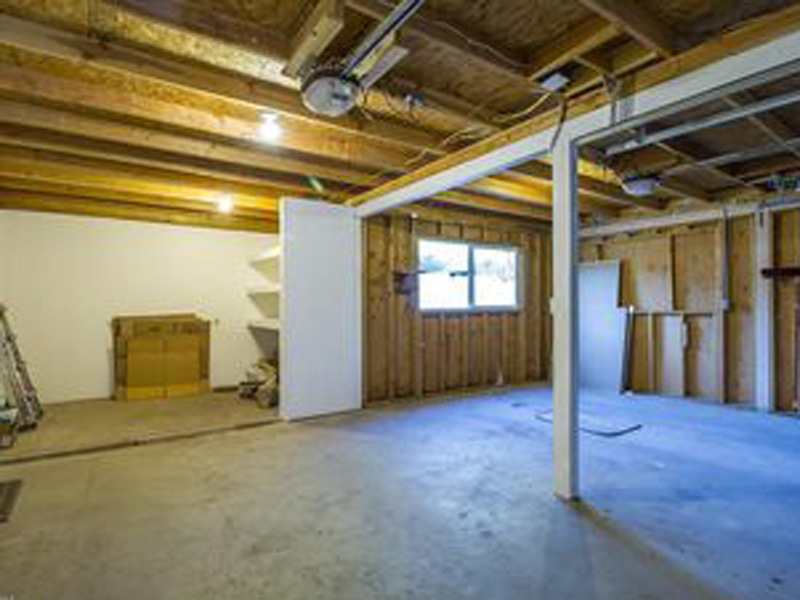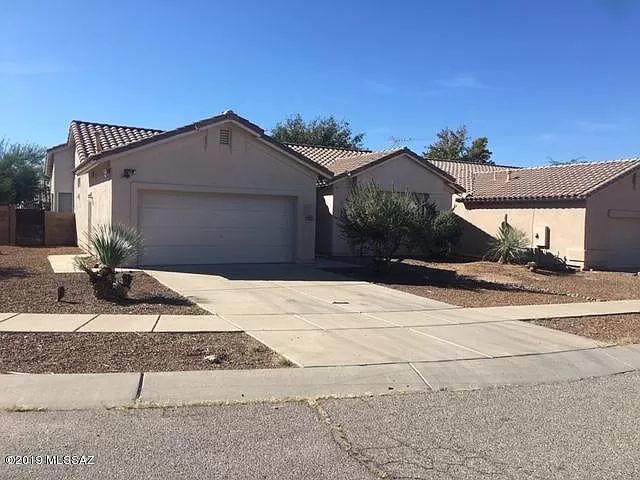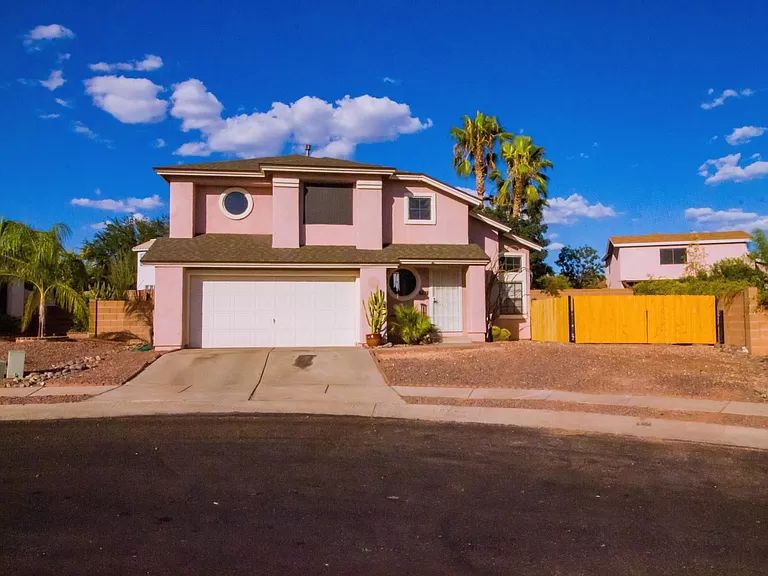Is Your Garage Door Stuck? Right here's What to Do First
When your garage door won't open, begin with these necessary security checks prior to attempting any repair services. First, ensure no one is standing near the door and that automobiles are clear of the opening. Look for apparent indicators of damage like busted panels, bent tracks, or hanging wires. If you see a snapped springtime or seriously damaged components, quit immediately and call an expert—-- these repairs need customized devices and know-how to take care of securely.

Inspect These 6 Points Prior To Calling an Expert
Prior to assuming you require pricey repairs, run through this quick diagnostic checklist that addresses most garage door issues:
-
Source of power: Confirm the opener is connected in and the electrical outlet is working
-
Remote batteries: Replace dead batteries in your push-button control
-
Hand-operated lock: Check if somebody accidentally engaged the hand-operated lock
-
Blockages: Search for debris obstructing the door's path or sensors
-
Emergency situation release: Make sure the red emergency cord hasn't been drawn
-
Circuit breaker: Verify the garage circuit hasn't stumbled
These simple checks fix around 70% of garage door issues without calling for professional treatment.
10 Common Reasons Your Garage Door Won't Open
Understanding why your garage door opener isn't functioning assists you choose the ideal remedy. Right here are one of the most frequent reasons property owners experience:
Dead remote batteries represent the easiest fix—-- when batteries pass away, the remote can't send out signals to the opener. Power blackouts or tripped breakers cut electrical power to the motor. Busted springs protect against the door from raising correctly and call for instant professional attention. Sensing unit imbalance reasons safety and security systems to obstruct door operation. Track obstructions quit rollers from relocating efficiently. Motor overload triggers automatic shutoffs when the opener discovers resistance. Restriction switch troubles perplex the opener concerning door position. Cable television damages interferes with the training system. Weather-related problems affect door activity throughout severe temperature levels. Part wear from age gradually minimizes system efficiency.
Problem # 1: Dead Remote Batteries
When your wall surface button functions yet your remote doesn't, dead batteries are normally the offender. Most garage door remotes utilize either 3-volt lithium or 12-volt alkaline batteries. Remove the back cover of your remote and examine the battery kind. Replace with fresh batteries and evaluate the remote. If it still doesn't work, you may need to reprogram it to your opener. Consult your opener's handbook for certain reprogramming instructions, as the process differs by maker.
Problem # 2: Power Supply Issues
Garage door power problems often originate from loose links or stumbled circuits. Examine that the opener is securely plugged into its electrical outlet—-- vibration can loosen connections gradually. Check the outlet with an additional tool to confirm it's working. Examine your home's breaker box for stumbled circuits, particularly if you've experienced tornados or power fluctuations. GFCI electrical outlets might have tripped and require resetting. If the opener has power yet won't react, the concern likely lies elsewhere in the system.
Issue # 3: Broken or Damaged Springs
Damaged garage door springs are amongst the most hazardous parts to manage. If you listen to a loud bang from your garage or notice the door really feels incredibly heavy when trying to lift manually, a springtime has actually likely snapped. Torsion springs run flat above the door, while extension springtimes rest on either side. Never ever try spring fixings yourself—-- these elements save tremendous stress that can create severe injury or fatality. Specialist substitute generally costs $150-$300 but guarantees your safety.
Trouble # 4: Obstructed Safety Sensing Units
Modern garage doors include security sensors that protect against closure when items are discovered. These sensors can stop the door from opening if they're dirty, misaligned, or obstructed by debris. Tidy sensor lenses with a soft towel and guarantee absolutely nothing blocks the unnoticeable light beam in between them. Examine that sensing units are properly straightened—-- a lot of have indicator lights that show link standing. Sensor problems commonly settle with basic cleansing and change.
Issue # 5: Track Obstructions or Damages
Garage door tracks guide rollers as the door goes up and down. Dirt, debris, old oil, or small objects can jam the system. Check tracks visually and get rid of any type of obstructions with a brush or fabric. Search for dents, bends, or warping that might impede smooth operation. Minor track adjustments are feasible for handy house owners, yet considerable damages calls for expert repair to avoid more troubles or security dangers.
Trouble # 6: Garage Door Opener Motor Issues
When the garage door electric motor runs but the door doesn't move, a number of concerns could be accountable. The motor may be overloaded and shutting off as a precaution. Equipment wear, especially in older devices, can protect against appropriate procedure. Chain or belt drive problems influence power transmission. If you listen to unusual grinding, clicking, or humming sounds, quit making use of the opener quickly. Electric motor fixings frequently cost more than replacement, particularly for systems over one decade old.
Step-by-Step Do It Yourself Troubleshooting Overview
Follow this organized strategy to garage door repairing while prioritizing safety and security throughout the process:
Step 1: Test the wall surface switch initially. If single spring vs double spring garage doors it functions yet the remote doesn't, concentrate on remote issues. If neither works, inspect power supply.
Action 2: Examine the hand-operated launch cord. If it's been drawn, the opener is disengaged from the door. Press the trolley back to reconnect.
Step 3: Manually examine the door by disengaging the opener and trying to raise the door by hand. It ought to move efficiently and remain in area when half-open.
Tip 4: Check noticeable components for damage, paying special attention to springtimes, cable televisions, and tracks.
Step 5: Check all security attributes including sensing units, limit buttons, and auto-reverse features.
Action 6: Examination different controls (remote, wall surface button, keypad) to isolate the problem source.
Always put on shatterproof glass and job gloves when carrying out evaluations, and never ever attempt repairs on springs or high-tension elements.
When to Call an Expert vs. do it yourself Solutions

Recognizing when to call a garage door specialist versus attempting DIY fixings safeguards both your safety and your wallet. Manage these concerns on your own: dead remote batteries, power supply troubles, minor track cleansing, sensing unit cleaning and alignment, and standard lubrication.
Never ever attempt these repair services yourself: spring replacement or change, cable repairs, major track realignment, electric wiring issues, opener electric motor substitute, or any fixing including high-tension parts. Expert service technicians have actually specialized devices, training, and insurance to take care of harmful repair work safely.
Take into consideration repair service costs versus replacement costs, particularly for doors over 15 years of ages. Modern garage doors offer much better safety and security features, energy effectiveness, and dependability than older models.
Emergency Situation Garage Door Solutions
When you're stuck to a garage door that will not open and require immediate gain access to, adhere to these emergency situation treatments:
Manual Procedure: Pull the red emergency release cord to disengage the opener. This allows hand-operated procedure however needs correct strategy to avoid injury. Lift the door gradually and equally, making use of leg muscle mass instead of your back. Many property doors evaluate 100-150 pounds, making them manageable for most adults.
Temporary Repairs: If the door opens manually however will not stay up, prop it open with sawhorses or clamps—-- never ever utilize your body or vehicles as assistances. For doors that won't close completely, make certain the opening is safeguarded if you must leave.
Emergency situation Solution: Several garage door business provide 24/7 emergency situation service for circumstances involving safety and security problems, caught vehicles, or complete system failings. While extra expensive than regular solution calls, emergency situation repair work supply prompt options when required most.
Safety Warning: What NOT to Do
Garage door security needs comprehending unsafe repair services that must never be attempted by house owners:
Never try to fix springs—-- they save sufficient power to create fatal injuries when they snap or are poorly handled. Do not compel a stuck door—-- this can harm the opener, tracks, or door panels, producing much more costly problems. Stay clear of bypassing safety attributes—-- sensors and auto-reverse devices prevent significant injuries and residential or commercial property damage.
Do not neglect strange sounds—-- grinding, scraping, or banging sounds show problems that get worse over time. Never make use of the door if cables are frayed or damaged—-- the door can drop all of a sudden. Do not attempt electric fixings unless you're a qualified electrical contractor—-- garage door openers use both 120V household existing and low-voltage control circuits.

Precautionary Maintenance to Avoid Future Issues
Normal garage door maintenance avoids most common problems and prolongs system life expectancy significantly:
Month-to-month Tasks: Visual evaluation of all parts, evaluating auto-reverse safety and security functions, checking and tightening hardware, and cleansing tracks and sensors.
Quarterly Tasks: Oiling all moving parts with suitable garage door lubricating substance, testing guidebook procedure, and inspecting weather sealing.
Annual Tasks: Professional inspection and tune-up, springtime modification if needed, and opener upkeep consisting of belt or chain adjustment.
Seasonal Jobs: Preparing for weather extremes, examining insulation, and readjusting opener setups for temperature modifications.
Constant upkeep costs much less than emergency repair services and guarantees trustworthy operation year-round.
Garage Door Will Not Open Frequently Asked Questions
Why won't my garage door open with the remote but deals with the wall surface button?
This usually indicates dead remote batteries, signal disturbance, or the demand to reprogram the remote. Examine batteries first, after that consult your opener manual for reprogramming instructions.
Can I manually open my garage door if the power is out?
Yes, draw the red emergency release cable to disengage the opener, after that lift the door by hand. Be planned for the door's complete weight and lift with proper strategy to prevent injury.
Just how do I recognize if my garage door spring is damaged?
Indicators consist of a loud bang from the garage, the door feeling extremely heavy when raising by hand, noticeable gaps in the spring coils, or the door just opening up a couple of inches prior to quiting.
Is it risk-free to utilize my garage door if it won't open completely?
No, partial procedure suggests mechanical troubles that could aggravate unexpectedly. Stop using the door and have it evaluated by a specialist to prevent more damages or injury.
What should I do if my garage door opens up but will not close?
Inspect safety sensors for obstructions or imbalance, check out the tracks for particles, and check the auto-reverse feature. If these do not fix the issue, get in touch with an expert.
Just how much does it cost to take care of a garage door that will not open?
Prices vary widely depending on the trouble: battery substitute ($5-$10), expert diagnosis ($50-$100), spring substitute ($150-$300), or opener substitute ($200-$500).
Can weather affect my garage door's capability to open?
Yes, severe cold can enlarge lubricating substances and affect metal parts, while heat can cause growth concerns. Many troubles fix as temperature levels normalize, but relentless problems may need professional attention.
Why does my garage door open up a couple of inches after that stop?
This usually suggests damaged springs, limitation switch troubles, or track obstructions. The opener's security features quit operation when resistance is discovered, protecting against damages to the motor or door.
Get Specialist Aid for Complex Problems
When do it yourself repairing does not solve your garage door issues, expert technicians provide the proficiency and tools needed for safe, long-term repair work. Certified professionals detect concerns properly, use manufacturer-approved parts, and provide service warranties on their job.
Professional solutions consist of: thorough system examinations, springtime and cable television replacement, opener repair work and substitute, track positioning and substitute, electrical troubleshooting, and emergency service telephone calls.
What to expect: in advance pricing, accredited and insured professionals, same-day solution for lots of fixings, and follow-up maintenance referrals.
The majority of garage door firms provide complimentary estimates for significant fixings and can provide immediate options for immediate troubles influencing home security or lorry accessibility.
Getting Your Garage Door Working Again
A garage door that won't open does not need to spoil your day or break your spending plan. Begin with simple troubleshooting steps like inspecting power, changing batteries, and analyzing for noticeable blockages. Several issues have quick DIY remedies that bring back normal operation within mins.
Nevertheless, identify when expert assistance is essential—-- particularly for spring-related problems, electrical troubles, or complicated mechanical failings. Trying harmful fixings on your own takes the chance of significant injury and usually produces extra costly troubles.
Routine maintenance avoids most garage door concerns and makes sure dependable operation for years to come. When troubles do take place, address them promptly to prevent more pricey repair work and keep your home's security and comfort. Whether you need a basic battery replacement or complete system overhaul, remedies exist to get your garage door working efficiently once again.